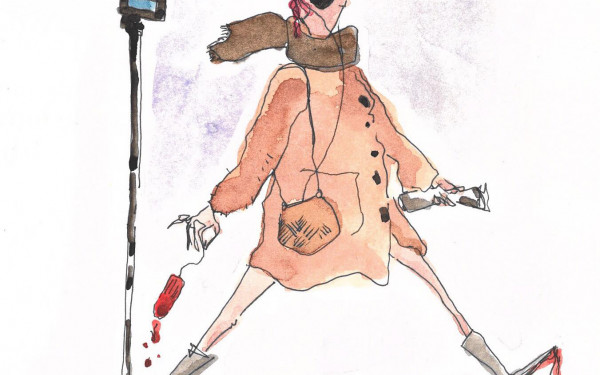Menstrual Hygiene Project Meets Obstacles
ASFA Advocacy Committee Looking for New Ways to Expand Project
When the Concordia Council on Student Life granted President Elect Julia Sutera Sardo $3000 for the Arts and Science Federation of Associations menstrual hygiene project, she felt mixed emotions.
Sutera Sardo was grateful for more funding, but disappointed that she only got half of what she requested.
She requested $6750 from CCSL’s special project fund. Sutera Sardo determined that she would split the money so that there was enough for pads and tampons as well as for 75 menstrual cups. CCSL granted her $3000 which gives her enough for 50 menstrual hygiene cups, out of the 75 that students ordered. The brands and types of menstrual hygiene cups that they purchase cost them about $60 per cup.
Sutera Sardo explained that while she was sent a “generic e-mail”, she was told by someone that CCSL only funded half because they didn’t find the project financially sustainable.
“But if this is what the students need, why oppose it, why not help them, and why give money to other projects that don’t have as much of an impact as this one?” Sutera Sardo wondered.
According to dean of students Andrew Woodall, the project was only partially funded in large part due to budgeting reasons.
Woodall explained that there is $165 000 a year for the special project fund. $20 000 of that is always set aside for the Housing and Jobs Office and $10 000 is set aside for committee participation awards, leaving them with $135 000 for other projects.
This year, the CCSL had 175 project applications, requesting $458,146 in total. They approved 141 of those projects, including this one.
According to Woodall, council was unanimously in favour of her project, but also wanted to support other projects and were indeed concerned about the project’s financial sustainability.
“The idea of demystifying this thing that happens once a month to women is crucial […] so that part of it, the people were unanimously in support of,” he explained.
Woodall added that to him, it looked like Sutera Sardo is advocating for a “systems change” and change of attitudes, of which they are in favour. The council was unsure however, if providing students with free products was the best way of leading to that change.
They were also unsure how Sutera Sardo could use the funds for products without constantly running out and then requiring more funds for more products.
“It will certainly help the people that need it because it’s expensive and people need it, but will that actually change a system? I don’t know, it’s a very good question, I don’t know,” said Woodall.
Sutera Sardo felt that CCSL didn’t want her to go beyond posters. In her opinion, giving students access to menstrual hygiene products does more to release the stigma around menstruation than posters and promotional campaigns.
Sutera Sardo added that many students cannot afford to purchase menstrual hygiene products, and that her project would help a large portion of the student population.
Sutera Sardo said that she requested the $6570 as a boost to start the next step of the project, but that ASFA would have been able to continue funding the project themselves in the future.
Sutera Sardo has done two days of tabling—one downtown and one at Loyola, where they gave out free menstrual hygiene products. She explained that while they will try to have one more tabling session before the end of the semester, they won’t be able to do so as often as they had hoped. They will also not be able to store products in the member association offices this year, for students to use in emergency situations.
As president of ASFA, she plans to make this project her priority, budgeting enough for next year. She also plans to request more funding from CCSL.
The committee started looking into more sustainable alternatives to pads and tampons, but found they cost nearly double the price. Sutera Sardo made sure to pitch this idea to CCSL but according to her, it made no difference.
She also applied for $3000 from the Sustainability Action Fund, but was denied. While they agreed that menstrual hygiene cups were a sustainable option, “they found that simply distributing the cups provided limited engagement opportunities,” Sutera Sardo explained.
“Maybe at CSU my efforts will pull through and they’ll want to fund some,” she said.
Sutera Sardo also hopes to add a section on periods to the committee’s Language of Oppression Pamphlet, and create spaces for people to express themselves about their periods, through writing and conversations with each other. As a counsellor on CSU, she also hopes to bring the project to senate.
“A lot of us menstruate and it needs to be taken seriously,” said Sutera Sardo.

_900_675_90.jpg)



__600_375_90_s_c1.jpg)
__600_375_90_s_c1.jpg)
